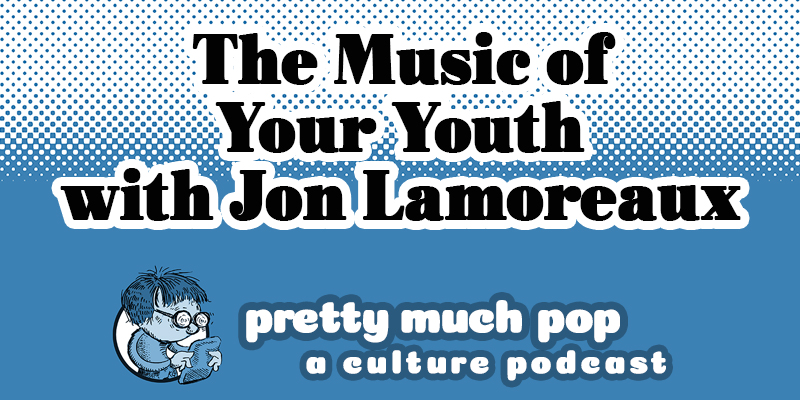
What long-term effects do songs that we’re exposed to early have on our adult tastes? As children we (hopefully) learn to love music, but then our critical faculties and peer pressure kick in, and many early influences become unacknowledged or transformed into guilty pleasures. Is the generation gap in musical taste really just due to how styles change over time (and we old folks just don’t get the new sound), or are there more fundamental reasons why it’s easier for younger people to absorb new music?
Today’s panel includes your host Mark Linsenmayer plus Erica Spyres, Brian Hirt, and The Hustle podcast host Jon Lamoreaux. They share their own experiences, songs from yesteryear that they have complicated feelings about now, and get into related topics like the activities of former pop stars and nostalgia in film soundtracks.
A few particular tracks that we mention are Go West’s “King of Wishful Thinking,” Jo Boxers’ “Just Got Lucky,” Jethro Tull’s “Songs from the Wood,” and The Cars’ “Magic.” Can a pretty Steve Howe intro redeem this Asia cheesefest?
A few articles we consulted included:
- “Why Old People Hate New Music” by Frank McAndrew
- “We Stop Discovering New Music at Age 30, a New Survey Suggests — Here Are the Scientific Reasons Why This Could Be” by Linsay Dodgson
- “Inside the Heads of People Who Don’t Like Music” by Divya Abhat
Follow Jon’s podcast @thehustlepod. To get an idea of the formats of The Hustle as compared to Mark’s Nakedly Examined Music, why not take a deep dive on Grand Funk Railroad’s amazing Mark Farner who appeared on both? …NEM, Hustle.
Hear more of this podcast at prettymuchpop.com. This episode includes bonus discussion that you can access by supporting the podcast at patreon.com/prettymuchpop. This podcast is part of the Partially Examined Life podcast network.
Pretty Much Pop: A Culture Podcast is the first podcast curated by Open Culture. Browse all Pretty Much Pop posts.
Do We Outgrow the Music of Our Youth? Pretty Much Pop: A Culture Podcast #99 is a post from: Open Culture. Follow us on Facebook and Twitter, or get our Daily Email. And don't miss our big collections of Free Online Courses, Free Online Movies, Free eBooks, Free Audio Books, Free Foreign Language Lessons, and MOOCs.
from Open Culture https://ift.tt/2Ud37uD
via Ilumina
Comments
Post a Comment